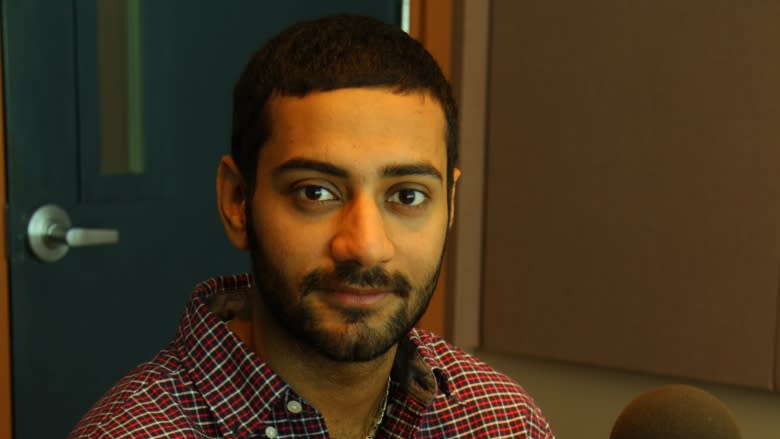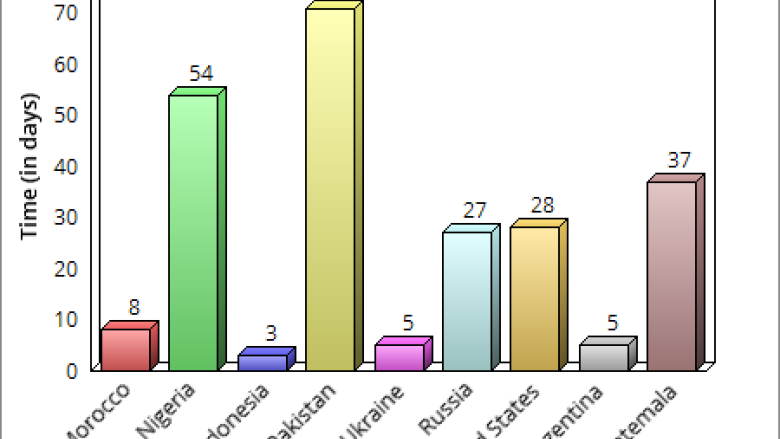Pakistani student defers U of M graduation after mother denied visa
Nabeel Fakhar should have graduated with the rest of his undergraduate class Tuesday at the University of Manitoba.
Instead he has deferred his graduation after finding out his mother's application for a visa to come to Canada for the ceremony was denied.
Fakhar, an international student from Pakistan, told CBC's Information Radio the completion of his economics degree was not simply a symbol of his success but one he shared with his mother.
Live streaming technology won't cut it, he explained; he couldn't walk across the stage without her face in the audience.
"We had always imagined she would be here," Fakhar said Wednesday, "It was her dream to see me graduate."
When Fakhar found out Canada's Department of Immigration and Citizenship had denied his mother's application, citing a lack of evidence his mother would return to Pakistan, he said he was equal parts surprised and upset.
"I want to make sure she's here, sees me physically and experiences the atmosphere, like all of the other students, the whole class of 2015," Fakhar said.
His mother encouraged him to accept the degree on Tuesday even if she couldn't be there, but he refused.
They will be making a second visa application for his mother to come to Fakhar's rescheduled graduation date, now in October.
Fakhar described feeling jilted by the Canadian government, after coming to the country and spending roughly $50,000 to earn his degree and being able to demonstrate the financial ability to pay for a return flight for his mother.
"She has a family back home, she takes care of her father. She doesn't even know English, so what is she going to do here? She'd be bored anyway ... Honestly, I don't know how else I can prove to the government that she will go back."
'Refugee-producing countries'
"Finances aren't really the issue so much as ties back home that would bring the mother back home," immigration and refugee lawyer, David Matas told CBC.
Bolstering his mother's application with other things like the fact she cares for her father in Pakistan, will be the only thing that will change the application outcome, Matas said.
"There is at least something more he can try. It's not as if it's a lost cause, it's just a difficult cause," he said Wednesday.
Visa applications from "refugee-producing countries" as Matas designated them, such as Pakistan, are often denied, Matas explained.
"Because there's this history of people coming to Canada and then staying to make refugee claims, visa offices are wary that people will come and stay," Matas said.
Denied applications can be appealed, Matas said, however, it isn't a practical solution for a one-time visit because the process is so lengthy.
Enforcement of immigration law
Canada's Department of Immigration and Citizenship was unable to comment on this specific case due to privacy concerns.
"We understand that people are disappointed when their visa applications are refused. However, our responsibility is to make sure that all visitors meet the requirements to come to Canada, as set out in Canada's immigration law," spokesperson for the department, Nancy Caron said in an email.
An application can be refused for the following reasons:
-
Failure to have appropriate documentation, i.e. a passport
-
Poor health
-
Failure to convince an immigration officer that the applicant has ties — such as a job, home, financial assets or family — that will take them back to their home country, leaving Canada at the end of their visit
-
Insufficient money to accommodate the applicant for their stay




